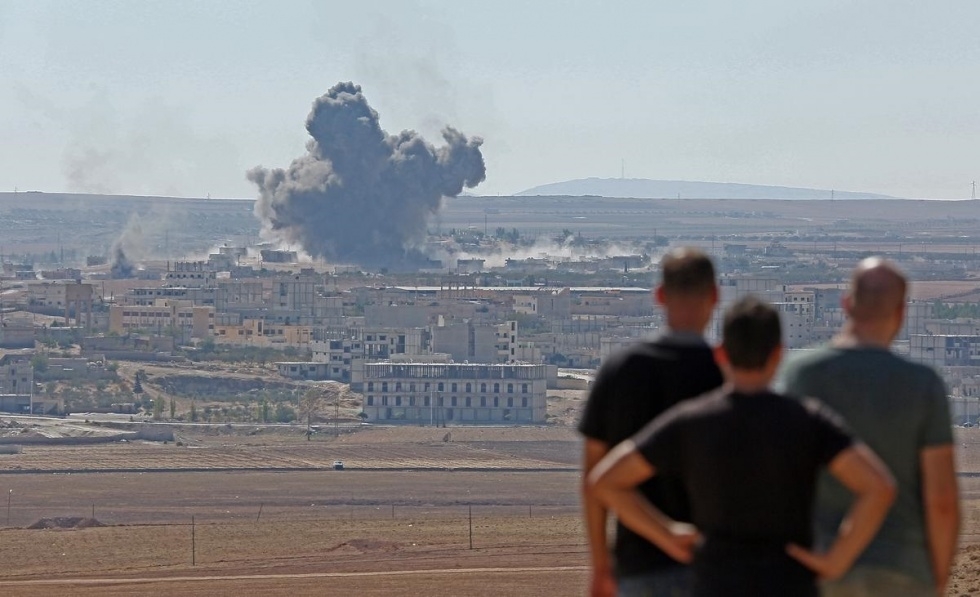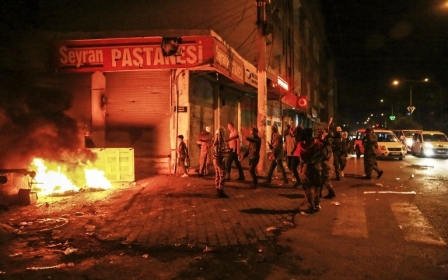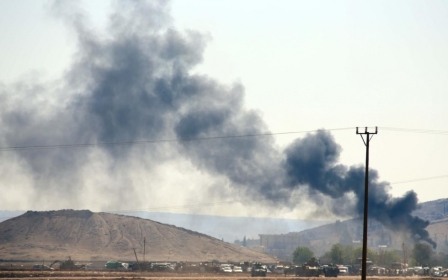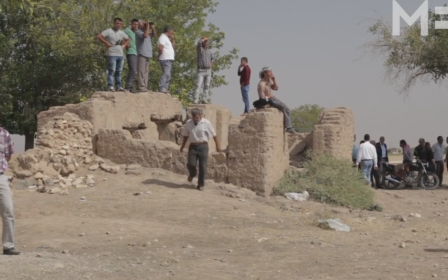US urges Turkey to play bigger role in anti-IS fight

The US is hoping that Turkey will play a bigger role in the ongoing campaign against Islamic State, with frustrations apparently growing between the two coalition partners.
State Department spokeswoman Jen Psaki said on Tuesday that the US would “certainly” like to see Turkey do more in the anti-IS effort.
“Turkey is determining what larger role they’ll play broadly as a part of the coalition moving forward, and that conversation is ongoing,” she told reporters.
General John Allen, the US special envoy for the anti-IS US-led coalition, and his deputy, Ambassador Brett McGurk, will be in Ankara on Thursday and Friday to meet with Turkish officials, Psaki said.
The meetings will address “basic logistical questions” regarding Turkey’s role in the coalition, White House press secretary Josh Earnest told reporters aboard Air Force One.
“There will also be a discussion about what Turkey’s political leadership perceives to be their interest in this region,” he added. “It is our view that there is a clear interest that Turkey has in working with the international coalition - or international community to deal with the threat that's posed by IS - notwithstanding whatever other political interests they may have there.”
Turkey last Thursday voted to extend and expand its mandate for military action in Syria and Iraq and authorised the use of ground troops. It also permitted foreign troops to use its air bases to launch strikes into Syria and Iraq, although it has thus far remained unclear to what extent Turkey will participate in the fight against IS.
Ankara has been criticised by some in the international community, as well as various Kurdish factions, for sending mixed messages.
Prime Minister Ahmet Davatoglu initially suggested that Turkey would intervene to prevent IS from taking over the Syrian border town of Kobane, but later told CNN that Turkey would only enter Kobane if the international community promised to protect its borders and committed to ousting Syrian President Bashar al-Assad, something that the US has long shied away from doing.
Another sticking point has been the creation of safe zones inside Syria, and the establishment of no-fly zones over parts of the country, which Turkey insists are needed if it is to keep its border safe.
US officials, however, have privately expressed frustration with the demands, pointing out that the heavy presence of US-led coalition airplanes - that began bombing Syria in late September and Iraq in late August – have in effect created a no-fly zone on Turkey’s southern border.
“There’s growing angst about Turkey dragging its feet to act to prevent a massacre less than a mile from its border,” a senior administration official told the New York Times.
“After all the fulminating about Syria’s humanitarian catastrophe, they’re inventing reasons not to act to avoid another catastrophe.
“This isn’t how a NATO ally acts while hell is unfolding a stone’s throw from their border,” said the official, who spoke anonymously to avoid publicly criticising an ally.
Secretary of State John Kerry has spoken with Davutoglu twice in the last two about the ongoing crisis that has seen IS make inroads in northern Syria, coming just a few hundred meters from Kurdish positions in Kobane and taking over eastern parts of the city, despite aerial bombardment from coalition war planes.
President Recep Tayyip Erdogan on Tuesday said that Kobane was “about to fall” and also stressed that the war against I could only be won with ground troops, although he has yet to order Turkish forces amassed on the border to cross into Kobane.
But the town is currently being held by YPG fighters who are the armed faction of the Kurdish Democratic Party, or PYD. Turkey considers the PYD to be an offshoot of the Kurdistan Worker's Party, or PKK, that has been embroiled in a bloody insurgency against Ankara for decades and has been branded a terrorist organisation by the US - an association that is seen to be complicating the situation on the ground.
US President Barack Obama has repeatedly stressed that the US would not send boots on the ground and while there have been some tentative steps to arm and train local opposition groups, most policy makers admit such plans will take months, if not years, to truly get off the ground.
“We have anticipated that it will be easier to protect population centres and to support offensives on the ground in Iraq, where we have partners” in the Kurdish Peshmerge fighters and the Iraqi Army, a senior administration official, who spoke on condition of anonymity, told the New York Times.
“Clearly, in Syria, it will take more time to develop the type of partners on the ground with whom we can coordinate," the official said while hinting that this gave Turkey a key window in which to act.
New MEE newsletter: Jerusalem Dispatch
Sign up to get the latest insights and analysis on Israel-Palestine, alongside Turkey Unpacked and other MEE newsletters
Middle East Eye delivers independent and unrivalled coverage and analysis of the Middle East, North Africa and beyond. To learn more about republishing this content and the associated fees, please fill out this form. More about MEE can be found here.




